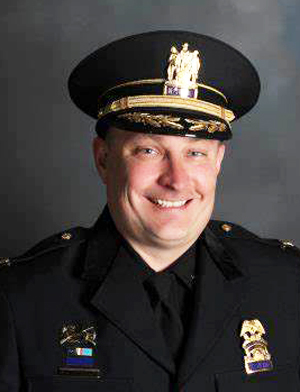
By Rev. Donald L. Perryman, Ph.D.
The Truth Contributor
One of the misconceptions is that we get to better solutions by fighting for our side better. That’s not true. But [it is] really by listening to and valuing different perspectives that we find better solutions. – Wendy Smith
Gun violence became the leading cause of death among children and teens in the United States in 2020, surpassing car accidents, according to a report from the University of Michigan. Unfortunately, Toledo is no exception to the rising tide of violence and homicides nationwide.
So, hiring the next police chief would be a life-and-death decision made under extreme scrutiny Mayor Wade Kapszukiewicz would have to make while “doing the people’s business.”
The pressure from The Blade and the police unions demanded hiring someone from inside the Toledo Police Department, thus maintaining the status quo. Former Toledo mayors Bell, Finkbeiner, and Owens, and members of the Coalition for Peaceful Toledo Neighborhoods, looking through rose-colored glasses and anchored in a cognitive bias of the past, emphasized a nostalgic return to the good-old-days to solve problems in today’s vastly different world.
The NAACP and other African American community organizations lobbied for change and the desire to approach the violence problem with fresh eyes, not jaded by the psychological blinders we clothe ourselves with to protect our egos.
How would the (thus far) lame-duck mayor respond to the clash of demands in such a high-stakes crisis?
After sitting in on the first round of interviews, I recommended David Taylor, a decorated African American safety professional who oversaw a District of Columbia police force that realized a record drop in homicides, down to a 40-year low.
Taylor gets it! His responses revealed his extensive experience and knowledge on the ground among our most challenged, underserved neighborhoods. Taylor also correctly observed that “residents are asking for a new strategy” and that there is insufficient “connectivity” between the community, residents, and law enforcement.
I found Taylor’s approaches to a new strategy insightful and compelling. He was equipped to immediately devote effort to the Toledo Police Department’s stifling morale problem. He also recognized, as I do, that crime is not just a law enforcement problem but requires the engagement of our social services community in building thriving neighborhoods.

Most of all, Taylor’s experience and strategy promised a new mindset to those looking for a change: “Neighborhood safety belongs to the whole community, not just the city government,” he stressed. I found Taylor’s approach sustainable to making long-term progress in the critical need to balance a focus on public safety and increasing violent crime while simultaneously investing in and addressing the root causes of violence, including implicit and structural bias in the criminal justice system.
Nevertheless, Mayor Kapszukiewicz hired Interim Chief Michael C. Troendle as the permanent Chief of the Toledo Police Department after “more feedback from more people and more anguish over the choice than any other decision” he has made as mayor.
Notably, Troendle was not the choice of the Toledo Police Patrolmen’s Association union either but has had a storied career and a sterling track record in developing and implementing Smart Policing Initiatives. He has also led TPD’s shift to Intelligence-led Policing, transforming the organization’s operations and how it addresses crime.
Troendle purports to be the architect and administrator of the late Chief Derrick Diggs’ innovative Smart-On-Crime model that decreased homicides and violent crime in Toledo each year of Diggs’ leadership. Diggs took the data-driven 21st-century policing model to Fort Meyers, Florida, where he turned around a failed police department that lacked discipline and was rife with corruption, favoritism and racial problems.
Under Diggs, Fort Myers experienced several straight years of reduced violent crime and lowered the crime rate to the lowest it’s ever been. However, Diggs’ greatest attribute in Toledo and Florida was his ability to strengthen police-community relations.
Kapszukiewicz spoke with Diggs two times after Kral’s retirement announcement. “I seriously considered [hiring Diggs as TPD chief], and there would have been no application process whatsoever. No national search. It was Diggs’ job if he wanted it. But then his illness got worse,” the mayor said.
More importantly, Troendle talked about looking up to Diggs as a role model and describing him as “the best Police Chief TPD has ever had” in interviews. Troendle is also the only candidate willing to move his residence inside the City of Toledo’s geographical boundaries.
It is also noteworthy that under Troendle, there have not been any homicides in Toledo in over two months, which is the most prolonged period between homicides since before the COVID pandemic.
In addition, the word on the street is that the police union is terrified and opposed Troendle’s hiring because they worry he would discipline their members more aggressively than under previous leadership.
Yet, in a decision that seemed to pit insiders against outsiders and the status quo against change, Kapszukiewicz creatively shifted an either/or choice to a both/and solution.
Even in a divided world of extreme political polarization, Chief Michael C. Troendle deserves to show us what he can do as Toledo’s Chief of Police.
While the decision may not make everyone ecstatic, it is one all Toledoans can live with. Thus, Troendle’s hiring is the superior selection among many remarkable candidates and several competing constituency demands.
Contact Rev. Donald Perryman, PhD, at drdlperryman@enterofhopebaptist.org
